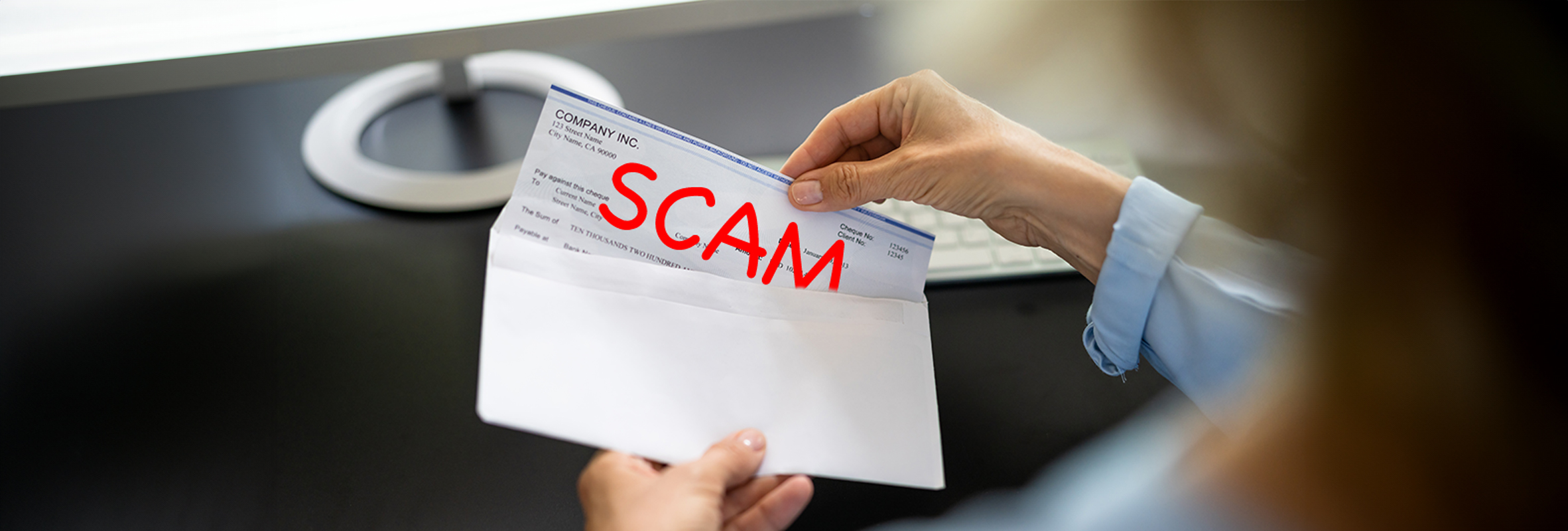How to Spot a Fraudulent Cheque: Key Signs and Risks
October 3, 2024
Fraudulent cheques can cause significant financial loss and legal trouble. With the rise of mobile banking, cheque fraud schemes have evolved, and it’s important to know how to identify a fake cheque.
Here are some key signs to look for and risks to be aware of:
The Form: “Mobile Deposit Only” is Not a Valid Cheque
One of the first red flags of a fraudulent cheque is the phrase “Mobile Deposit Only” or any similar wording. This form is not considered a valid cheque by financial institutions. The phrase suggests that the cheque is only intended for mobile deposit, but legitimate cheques should not have such restrictions printed on them. If you come across a cheque with this phrase, it is best to treat it with suspicion.
What to Look for on a Cheque
To identify a fraudulent cheque, carefully examine these key elements:
- Check the Details: Ensure the cheque has all the necessary details, including the payer’s name, the bank’s name, the cheque number, and a valid date. Missing or incomplete information can be a sign of fraud.
- Check for Alterations: Look for signs of tampering, such as erasures, corrections, or overwriting. Any irregularities could mean the cheque has been altered.
- Pay Attention to Printing Quality: A legitimate cheque usually has high-quality printing with clear, consistent fonts. Fuzzy or distorted printing can indicate that a cheque has been forged or created using low-quality printing methods.
- Verify the Bank Details: Ensure that the cheque contains the correct bank name, address, and logo. Fraudsters often use incorrect or outdated information to make a cheque appear legitimate.
- Inspect the MICR Line: The MICR (Magnetic Ink Character Recognition) line at the bottom of the cheque contains the routing number, account number, and cheque number. Check for irregularities in font size or spacing. Real cheques are printed with magnetic ink; counterfeit cheques often use standard ink.
Additional Risks Involved in Cheque Fraud
There are several risks associated with cheque fraud, including:
- Financial Loss: If a fraudulent cheque is deposited, and it bounces, you could be held responsible for the amount, potentially resulting in significant financial loss.
- Legal Consequences: Depositing a fraudulent cheque, even unknowingly, can lead to legal complications. A financial institution could report suspicious transactions to authorities, and the depositor could face investigation.
- Identity Theft: Fraudulent cheques are often part of broader schemes, like identity theft. If you provide personal information to a fraudster, it can be used for further fraudulent activities.
Being vigilant and knowing the warning signs of a fraudulent cheque can help protect you from financial loss and legal risks. Always examine cheques carefully, especially if they contain unusual phrases like “Mobile Deposit Only.” When in doubt, contact your financial institution to verify the cheque’s authenticity before taking any action.
YNCU members, if you know, or think you are in possession of a fraudulent cheque, please contact our Service Excellence Centre at 1-800-413-YNCU (9628). You can also contact the Canadian Anti-Fraud Call Center at 1-888-495-8501.
Don’t forget to follow us on Instagram and Tik Tok for more Honest Money Talk tips!

